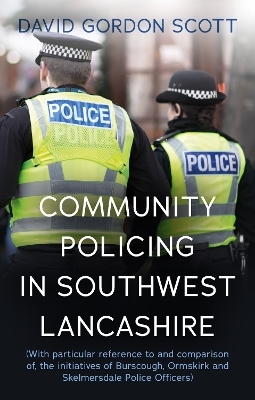
Community Policing in Southwest Lancashire
Seiten
2024
Troubador Publishing (Verlag)
978-1-80514-446-5 (ISBN)
Troubador Publishing (Verlag)
978-1-80514-446-5 (ISBN)
Community Policing in Southwest Lancashire provides important historical case studies of the relationship between community policing, state surveillance and community responsiveness.
The intentions of 'community policing' are extensively contested. Is it about state surveillance, responding to the needs of community, or mystifying and providing a cloak of legitimacy for more coercive police practices?
Through ethnographic research this book aims to shine a spotlight on these contested interpretations. The research in Burscough, Ormskirk and Skelmersdale is an attempt to clarify the issues and determine the success, or failure, of this approach to policing in terms of image, effectiveness, and responsiveness to the needs of diverse communities. The study includes the perceptions of contemporary policing practices from three hundred members of the public, one hundred from each of the areas specified above.
The investigation incorporates extensive interviews with six officers, whose responses are utilised in the body of the text so that an in-depth perspective of the police interpretation of community policing can be analysed. Both aspects are combined so that a capacious impression of current opinions can be attained and thus develop an understanding of the way the police in Southwest Lancashire can be considered as community responsive.
Community Policing in Southwest Lancashire reflects on how community policing can be reimagined to avert greater recourse to coercive policing.
The intentions of 'community policing' are extensively contested. Is it about state surveillance, responding to the needs of community, or mystifying and providing a cloak of legitimacy for more coercive police practices?
Through ethnographic research this book aims to shine a spotlight on these contested interpretations. The research in Burscough, Ormskirk and Skelmersdale is an attempt to clarify the issues and determine the success, or failure, of this approach to policing in terms of image, effectiveness, and responsiveness to the needs of diverse communities. The study includes the perceptions of contemporary policing practices from three hundred members of the public, one hundred from each of the areas specified above.
The investigation incorporates extensive interviews with six officers, whose responses are utilised in the body of the text so that an in-depth perspective of the police interpretation of community policing can be analysed. Both aspects are combined so that a capacious impression of current opinions can be attained and thus develop an understanding of the way the police in Southwest Lancashire can be considered as community responsive.
Community Policing in Southwest Lancashire reflects on how community policing can be reimagined to avert greater recourse to coercive policing.
Dr David Gordon Scott is a British criminologist. He has been teaching criminology and justice studies in Universities in England since 1994. His first piece of ethnographic research was on policing and community responsiveness. He has subsequently written on the topics of prisons, penal abolition, state crime and liberative justice. Community Policing in Southwest Lancashire is David’s first book with Troubador Publishing, he is based in Manchester.
| Erscheinungsdatum | 23.03.2024 |
|---|---|
| Verlagsort | Market Harborough |
| Sprache | englisch |
| Maße | 138 x 216 mm |
| Themenwelt | Recht / Steuern ► Strafrecht ► Kriminologie |
| ISBN-10 | 1-80514-446-4 / 1805144464 |
| ISBN-13 | 978-1-80514-446-5 / 9781805144465 |
| Zustand | Neuware |
| Haben Sie eine Frage zum Produkt? |
Mehr entdecken
aus dem Bereich
aus dem Bereich
wie wir unsere Mimik und verborgene Körpersignale entschlüsseln
Buch | Hardcover (2022)
Droemer (Verlag)
CHF 27,95


